How much can I earn working in Canada?

Table of Contents
Are you looking for a job or are you a professional already in a certain field and expecting a significant income in Canada? Or are you a student looking to go back to school or just been accepted into a university in Canada and wondering how much you can make per hour, daily, weekly, monthly or yearly in Canada? In this post, I will discuss about how earnings across different professions in Canada
You want to improve your skills and abilities through education or training and you want to know which course pays off the most in Canada. What your new salary will be with the new degree, certificate or diploma ? A recent update on the salary of white-collar and blue-collar workers in Canadians, showed that there has been a gradual increase from 2013 to the present day. The average salary, or weekly wage, is $ 988 and $ 50,000 per year, and that number is steadily increasing.
Average Salary in Canadian Provinces
- Alberta: $59,384
- British Columbia: $49,244
- NewFoundland and Labrador: $53,820
- Saskatchewan: $52,728
- Ontario: $52,260
- Manitoba: $47,632
- New Brunswick: $46,644
- Nova Scotia: $45,292
- Quebec: $47,320
- Prince Edward Island: $42,380
Over the years we have seen that professional workers or degree, diploma, or certificate holders earn more in wages. If compared to those who do not have any document to show they are graduates of an institution.
In some cases, there have been arguments that a degree is way better than the rest while others will say they are all the same. What really is the difference between them?
What is the Difference?
- Degree: This is a level of educational achievement that is globally accepted. It is divided into
- Bachelor or Undergraduate Degree: obtained after you graduate from the university or college. It usually takes a period of 3-5 years to get this type of degree and it is the first of its kind.
- Master’s Degree: Many people do not care about this type of degree. You can only be eligible to obtain a Master’s degree when you have obtained a bachelor’s degree. it generally takes about 1 to 2 years. This allows those with an undergraduate degree to go deeper into their course of study.
- Doctorate or Ph.D.: This one is a bit tougher; it takes several years to obtain and is usually for those who intend to become an academic or professor.
- A Diploma is a qualification that is given to a person or a professional on completing training or adding new skills to their knowledge which does not really require them taking a Master’s Degree.
- Let’s assume you are a professional or you already have a master’s degree in a particular field and you wish to acquire certification from a different/new area of expertise. A certificate will be a more compact and focused credential that will prove useful.
Related post: 10 tips on writing Canadian style resume
Professions and Jobs Earning High Salaries in Canada.
So, here are some of the jobs with high salaries that we have put together, they can change with time.
- Federal judges: $308,600- $396,700
- Specialist physicians: $117,00-$375,000
- Engineering managers: $68,100-$172,000
- Finance & Communications: $77,805 – $129,629
- Transportation, and Construction: $75,159 – $141,569
- Dentist: $53,805 – $213,671
- Family physicians: $58,015 – $310,054
- Lawyers: $48,630 – $146,431
- Project manager: $48,910 – $113,053
- Business analyst: $46,642 – $92,975
- Registered nurse: $47,882 – $90,777
- Actuaries: $45,820 – $129,740
- Senior sales executive: $41,808 – $135,490
- Sales account executive: $31,173 – $102,353
- Airline pilots: $35,233 – $146,274
Jobs with Lowest Salary in Canada
Some of the jobs with a moderate or low salary in Canada are:
- Tailor or seamstress: $22,514 – $41,546
- Cook: $20,994 – $26,026
- Cashier: $21,183 – $29,156
- Dishwasher: $21,286 – $28,540
- Bartender: $20,091 – $42,837
- Restaurant host/hostess: $21,113 – $29,120
- Service station attendant: $21,052 – $32,357
- Food and beverage server: $22,360 – $30,369
- counter attendant or kitchen helpers: $21,184 – $32,888
- Babysitters, nannies, and old people helpers: $20,880 – $37,354
Conclusion
You were reading the post on “earnings across different professions in Canada”. Please feel to leave a comment if you have any feedback on this post.















